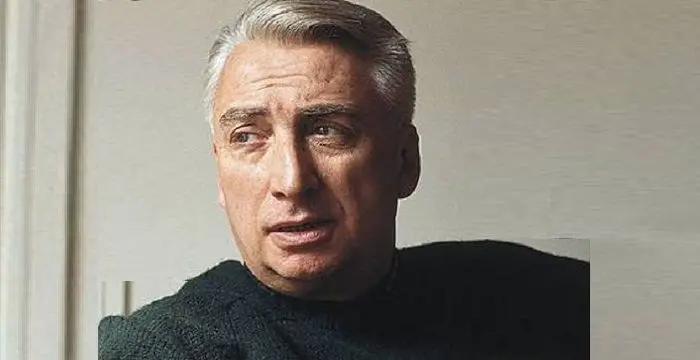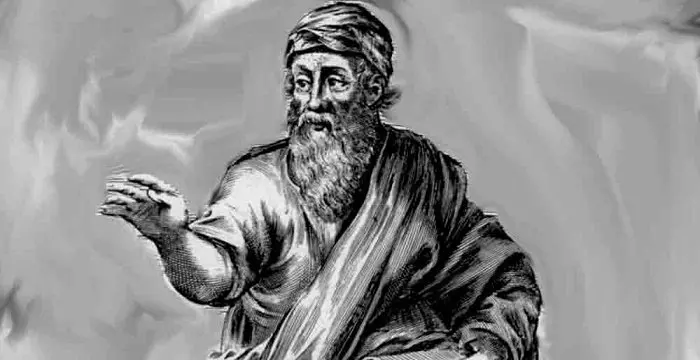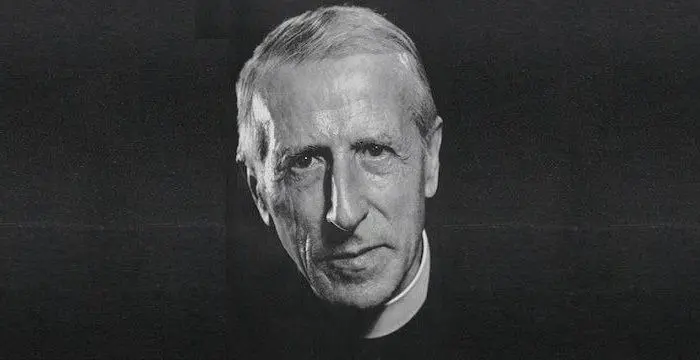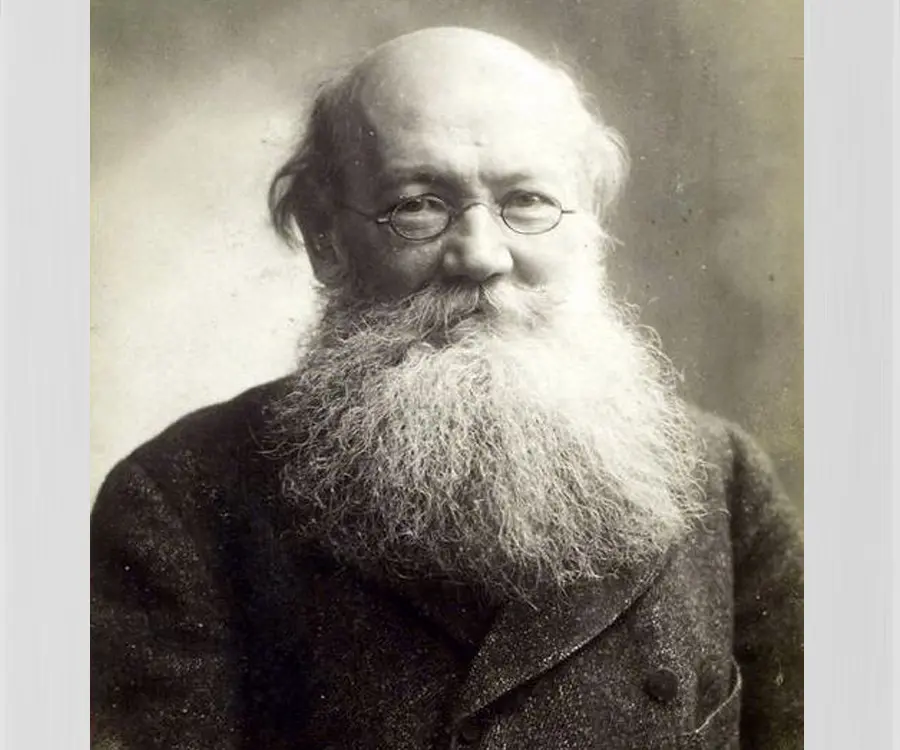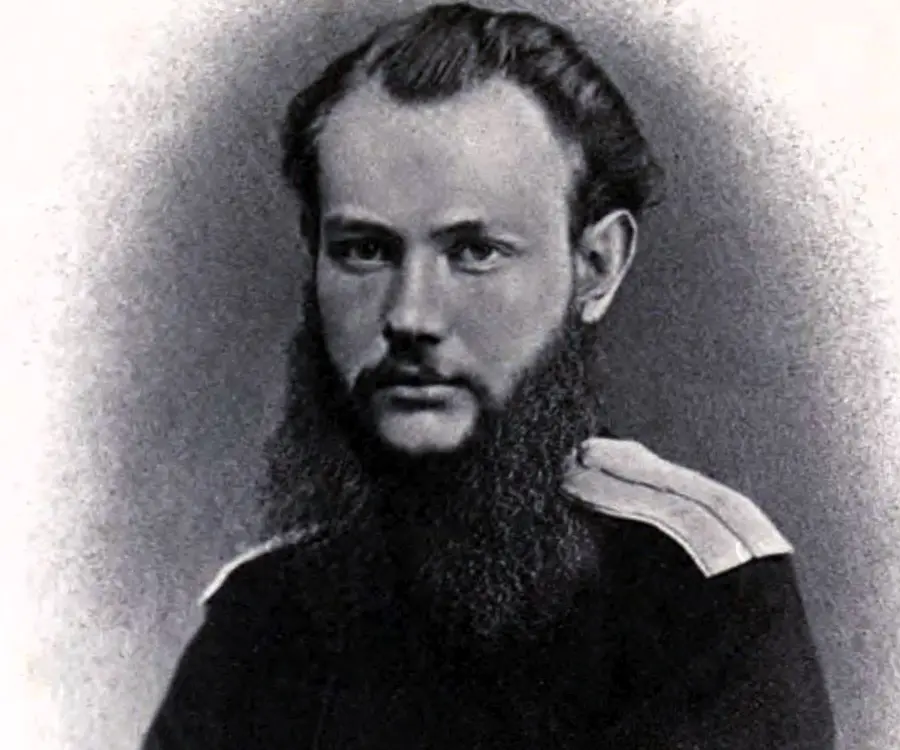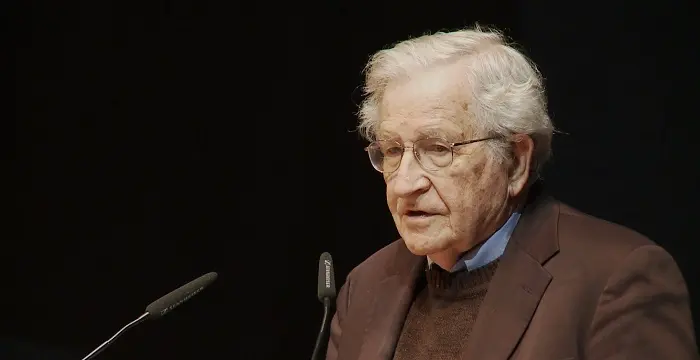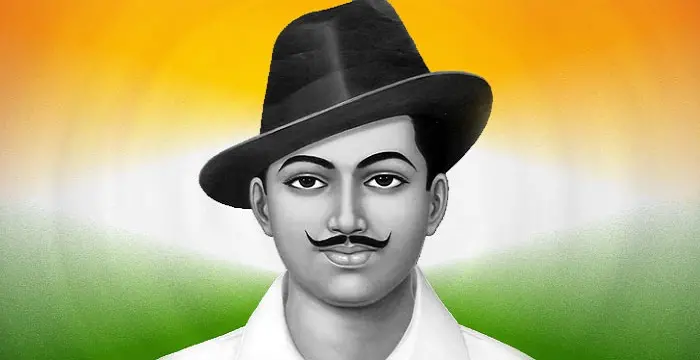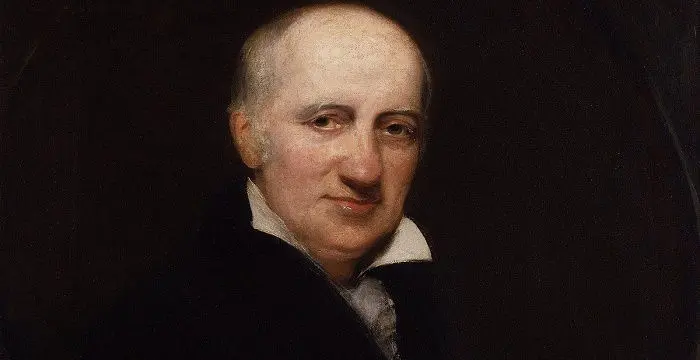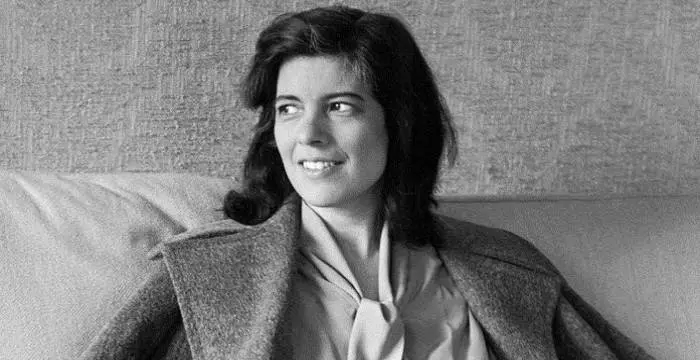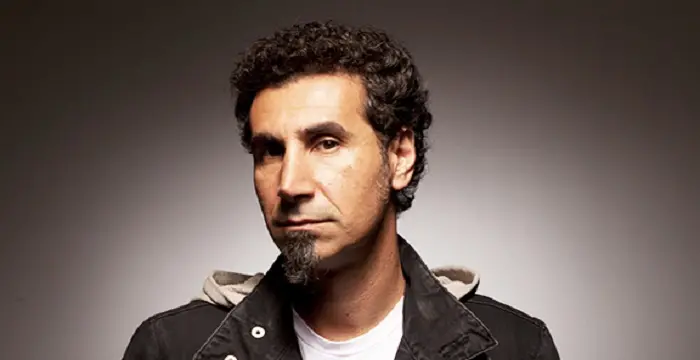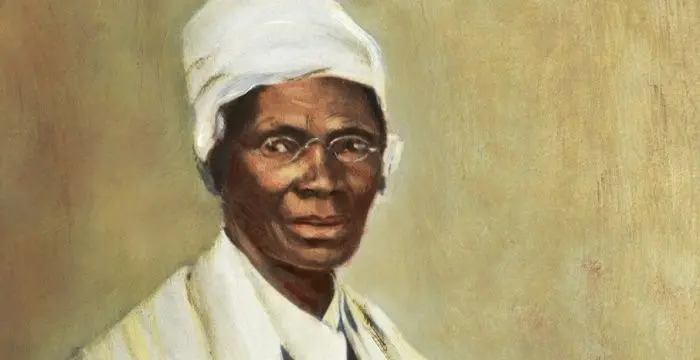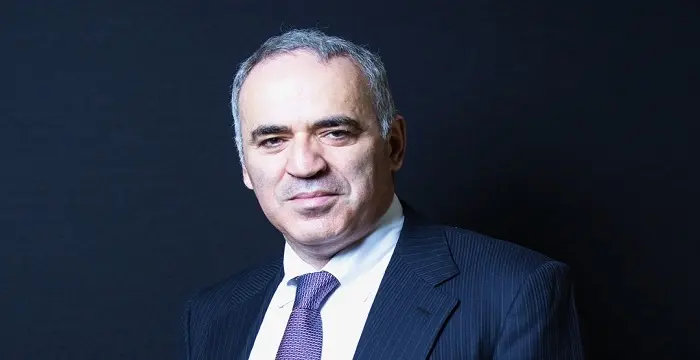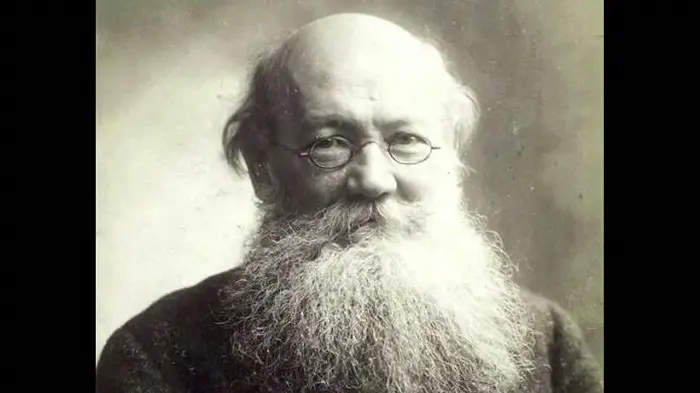
Peter Kropotkin - Philosophers, Life Achievements and Facts
Peter Kropotkin's Personal Details
Prince Pyotr Alexeyevich Kropotkin, aka Peter Kropotkin, was a Russian philosopher and activist
| Information | Detail |
|---|---|
| Birthday | December 9, 1842 |
| Died on | February 8, 1921 |
| Nationality | Russian |
| Famous | Anarchists, Activists, Intellectuals & Academics, Philosophers, Philosophers |
| Ideologies | Anarchists |
| Birth Place | Moscow, Russian Empire |
| Gender | Male |
| Sun Sign | Sagittarius |
| Born in | Moscow, Russian Empire |
| Famous as | Philosopher & Activist |
| Died at Age | 78 |
// Famous Philosophers
Roland Barthes
Roland Barthes was a French literary theorist, critic and semiotician. This biography profiles his childhood, life, works, achievements and timeline.
Pythagoras
Pythagoras of Samos was a Greek mathematician and philosopher. Read on to learn more about Pythagoras’s profile, childhood, life and timeline.
Pierre Teilhard de Chardin
Pierre Teilhard de Chardin was a famous French philosopher and a priest who was also known for his controversial writings. Read more about the life and works of this philosopher in the following article.
Peter Kropotkin's photo
Who is Peter Kropotkin?
Prince Pyotr Alexeyevich Kropotkin, aka Peter Kropotkin, was a Russian philosopher and activist. He was an advocate of anarchism or what is known as a society which is free from any central rule and is based on the voluntary association of its members. He was also a scientist who was interested in geography and zoology. He came from a Russian aristocrat family and was in line to become a future military officer but renounced his prince hood in the quest for anarchism. He considered that feudalism and capitalism created only artificial scarcity and promoted privilege for a few. Instead he proposed to have a decentralized economy where human evolution can go forward with the help of mutual support, mutual aid and voluntary cooperation. He believed that these traits already existed in different societies and had to be adopted by mankind as a whole for its survival. He was against the concept of having private property and the use of money as an exchange medium for goods and services. He thought that people should contribute to the society as per their capabilities without any payment and take from the society whatever they needed without exchanging their requirements for money. He preached that a man’s worldly possessions should be divided equally among the community after his death.
// Famous Intellectuals & Academics
Bertil Gotthard Ohlin
Bertil Gotthard Ohlin was a famous Swedish economist. This biography profiles his childhood, family life & achievements.
Emily Greene Balch
Emily Greene Balch was an American economist, sociologist and pacifist who won the 1946 Nobel Peace Prize. This biography of Emily Greene Balch provides detailed information about her childhood, life, achievements, works & timeline.
Martin Buber
One of the greatest philosophers to have ever walked on earth, Martin Buber contributions to philosophy is a long-standing one. Explore all about his profile, childhood, life and timeline here.
Childhood & Early Life
Peter Kropotkin was born on December 12, 1842 in Moscow, Russia.
His father was Prince Aleksei Petrovich Kropotkin, a Prince from Smolensk, and his mother was Yekaterina Nikolaevna Sulima, the daughter of a Cossack general.
His father married Yelizaveta Markovna Korandino two years after his own mother died of tuberculosis in 1846.
He had two elder brothers, Nikolai and Alexander and an elder sister named Yelena.
He joined the ‘First Moscow Gymnasium’ initially where he developed great interest for geography and history.
In 1957, he joined the ‘Corps des Pages’ at St. Petersburg when he was fifteen years old and became a personal page of Czar Alexander II four years later.
Career
In 1862 Peter Kropotkin joined the ‘Corps of Pages’ and received a commission in the Cossack Regiment stationed in Eastern Siberia.
He worked as an ‘aide de camp’ for the governor of Transbaikalia located in Chita for some time and then as an attaché to the governor-general of East Siberia located at Irkutsk for Cossack affairs during 1863.
In 1864, finding very little administrative work in Irkutsk, he toured North Manchuria from Tranbaikalia up to Amur and then up the Sungari River with scientific expeditions.
Seeing the impossibility of any reforms occurring in Siberia, he started reading the works of the French anarchist and political thinkers like Pierre-Joseph Proudhon, Alexander Herzen and John Stuart Mill in 1866.
In 1867 he resigned from the army and chose to study mathematics at the ‘Saint Petersburg Imperial University’.
His father disinherited him for giving up his military career and joining the geography section of the ‘Russian Geographical Society’. He explored the glacial formations in Sweden and Finland for the Society around this time.
His reports on the structure and topology of the area in Siberia won him great accolades and in 1971 he was offered the post of the secretary of the ‘Imperial Geographical Society of St. Petersburg’ which he refused to accept.
He paid a visit to Switzerland in 1972 and joined the local chapter of the ‘International Workmen’s Association’ and visited the ‘Jura Federation’ centers.
In May 1872 he declared himself an anarchist and after returning to Russia, became a member of the ‘Tchaikovsky Circle’ It was considered to be an illegal organization by the government as it was involved in spreading revolutionist ideas among the peasants of St. Petersburg and Moscow and for publishing articles written by Karl Marx, Charles Darwin and others.
In March 1874 he was arrested by the Russian police for his revolutionary manifesto, diary and other incriminating documents. He was convicted and imprisoned.
In 1876 he escaped from the ‘Peter and Paul Fortress’ and fled to Switzerland where he became quite famous in various radical circles.
In 1880 he published an article ‘An Appeal to the Young’ which impressed thousands of people all across the globe.
He visited England in 1881 for a year and took part in the ‘Anarchist Congress’ in London held on July 14, 1881. He also gave talks on anarchism at the ‘Stratford Radical and Dialectical Club’ and the ‘Homerton Social Democratic Club’.
When Czar Alexander II was assassinated in 1881, the Russian government pressurized the Swiss government to expel Kropotkin who had to move to Thonon in France.
Under pressure from the Russian government, the French government arrested Kropotkin in 1883 for being a member of IWA, tried him on false charges and sentenced him to five years of imprisonment.
He was released from prison in 1886 after repeated agitations by the ‘French Chamber’ and travelled to England on an invitation from Charlotte Wilson. Kropotkin co-founded with Wilson an anarchist newspaper named ‘Freedom Press’ and stayed in England at different places such as Harrow, Ealing, Acton, Bromley and Highgate at different times.
In 1897 he visited Canada at the invitation of James Mavor, a professor of political economy at the ‘University of Toronto’ and the United States at the invitation of fellow anarchist Johann Most.
Kropotkin was allowed to return to Russia after the ‘February Revolution’ of 1917 and was welcomed by thousands of people lining the roads of St. Petersburg. He was offered the post of the head of the ministry of education which he refused as it would be against his principles.
His hopes of the formation of a stateless society in Russia changed to bitter disappointment when the Bolsheviks came to power after the ‘October Revolution’.
Disappointed with the Bolsheviks he founded an anarchist cooperative society in the village of Dmitrov located to the north of Moscow and remained there during his last days.
Major Works
Peter Kropotkin published the book ‘In Russian and French Prisons’ in 1887 and his autobiography ‘Memoirs of a Revolutionist’ in 1899.
His famous second book ‘Mutual Aid: A Factor of Evolution’ was followed by ‘The Conquest of Bread’ and then by ‘Fields, Factories and Workshops’ during 1901 to 1902.
His book ‘The Great French Revolution’ published in 1909 turned him into a world renowned figure.
Personal Life & Legacy
He married a fellow Russian refugee Sophie Anaiev in 1876.
He had a daughter named Alexandra.
Peter Kropotkin died of pneumonia in Dmitrov near Moscow, Russia, on February 8, 1921.
Humanitarian Work
Peter Kropotkin spent his whole life in advocating a stateless society which would evolve through cooperation and not conflict.
Trivia
The funeral procession of Peter Kropotkin at Moscow and other places were marked by his followers carrying black flags and banners denouncing the Bolsheviks. These were the last demonstrations held by anarchists in Russia.
The ‘Dvorets Sovetov’ station of the Moscow Metro was named ‘Kropotkinskaya’ in his honor.
// Famous Anarchists
Noam Chomsky
Chomsky is an American linguist, political theorist, and activist, often referred to as "the father of modern linguistics”. Check out this biography to know about his childhood, family life, achievements and other facts related to his life.
Bhagat Singh
Bhagat Singh was an Indian revolutionary who played a pivotal role in the Indian Independence movement. This biography of Bhagat Singh provides detailed information about his childhood, life, achievements, works & timeline.
William Godwin
William Godwin was a famous political philosopher, journalist and novelist. He is also one of the proponents of anarchism. Explore this biography to learn more about his profile, childhood, life and timeline.
Peter Kropotkin biography timelines
- // 12th Dec 1842Peter Kropotkin was born on December 12, 1842 in Moscow, Russia.
- // 1846His father married Yelizaveta Markovna Korandino two years after his own mother died of tuberculosis in 1846.
- // 1862In 1862 Peter Kropotkin joined the ‘Corps of Pages’ and received a commission in the Cossack Regiment stationed in Eastern Siberia.
- // 1863He worked as an ‘aide de camp’ for the governor of Transbaikalia located in Chita for some time and then as an attaché to the governor-general of East Siberia located at Irkutsk for Cossack affairs during 1863.
- // 1864In 1864, finding very little administrative work in Irkutsk, he toured North Manchuria from Tranbaikalia up to Amur and then up the Sungari River with scientific expeditions.
- // 1866Seeing the impossibility of any reforms occurring in Siberia, he started reading the works of the French anarchist and political thinkers like Pierre-Joseph Proudhon, Alexander Herzen and John Stuart Mill in 1866.
- // 1867In 1867 he resigned from the army and chose to study mathematics at the ‘Saint Petersburg Imperial University’.
- // May 1872In May 1872 he declared himself an anarchist and after returning to Russia, became a member of the ‘Tchaikovsky Circle’ It was considered to be an illegal organization by the government as it was involved in spreading revolutionist ideas among the peasants of St. Petersburg and Moscow and for publishing articles written by Karl Marx, Charles Darwin and others.
- // Mar 1874In March 1874 he was arrested by the Russian police for his revolutionary manifesto, diary and other incriminating documents. He was convicted and imprisoned.
- // 1876In 1876 he escaped from the ‘Peter and Paul Fortress’ and fled to Switzerland where he became quite famous in various radical circles.
- // 1876He married a fellow Russian refugee Sophie Anaiev in 1876.
- // 1880In 1880 he published an article ‘An Appeal to the Young’ which impressed thousands of people all across the globe.
- // 1881When Czar Alexander II was assassinated in 1881, the Russian government pressurized the Swiss government to expel Kropotkin who had to move to Thonon in France.
- // 14th Jul 1881He visited England in 1881 for a year and took part in the ‘Anarchist Congress’ in London held on July 14, 1881. He also gave talks on anarchism at the ‘Stratford Radical and Dialectical Club’ and the ‘Homerton Social Democratic Club’.
- // 1886He was released from prison in 1886 after repeated agitations by the ‘French Chamber’ and travelled to England on an invitation from Charlotte Wilson. Kropotkin co-founded with Wilson an anarchist newspaper named ‘Freedom Press’ and stayed in England at different places such as Harrow, Ealing, Acton, Bromley and Highgate at different times.
- // 1887 To 1899Peter Kropotkin published the book ‘In Russian and French Prisons’ in 1887 and his autobiography ‘Memoirs of a Revolutionist’ in 1899.
- // 1897In 1897 he visited Canada at the invitation of James Mavor, a professor of political economy at the ‘University of Toronto’ and the United States at the invitation of fellow anarchist Johann Most.
- // 1901 To 1902His famous second book ‘Mutual Aid: A Factor of Evolution’ was followed by ‘The Conquest of Bread’ and then by ‘Fields, Factories and Workshops’ during 1901 to 1902.
- // 1909His book ‘The Great French Revolution’ published in 1909 turned him into a world renowned figure.
- // 1917Kropotkin was allowed to return to Russia after the ‘February Revolution’ of 1917 and was welcomed by thousands of people lining the roads of St. Petersburg. He was offered the post of the head of the ministry of education which he refused as it would be against his principles.
- // 8th Feb 1921Peter Kropotkin died of pneumonia in Dmitrov near Moscow, Russia, on February 8, 1921.
- // 1957In 1957, he joined the ‘Corps des Pages’ at St. Petersburg when he was fifteen years old and became a personal page of Czar Alexander II four years later.
- // 1971His reports on the structure and topology of the area in Siberia won him great accolades and in 1971 he was offered the post of the secretary of the ‘Imperial Geographical Society of St. Petersburg’ which he refused to accept.
- // 1972He paid a visit to Switzerland in 1972 and joined the local chapter of the ‘International Workmen’s Association’ and visited the ‘Jura Federation’ centers.
- // 1983Under pressure from the Russian government, the French government arrested Kropotkin in 1883 for being a member of IWA, tried him on false charges and sentenced him to five years of imprisonment.
// Famous Activists
Temple Grandin
Temple Grandin is a well-known American writer, autistic activist and animal expert. This biography profiles her childhood, life, achievements, career and timeline
Susan Sontag
Susan Sontag is an American critical essayist, cultural analyst, novelist, political activist, filmmaker and playwright of international repute. Read on to find out more about her childhood, career, profile and timeline.
Serj Tankian
Serj Tankian is a famous American singer-songwriter and member of the band, ‘System of a Down’. This biography profiles his childhood, music career, life, achievements and timeline.
Gaia Wise
Gaia Wise is an actress, environment activist and the daughter of Emma Thompson. Check out this biography to know about her childhood, family, personal life, including her age, birthday, etc.
Sojourner Truth
Sojourner truth was an African American abolitionist who was the first black woman to win a case against a white man. This biography provides detailed information about her childhood, life, achievements, works & timeline.
Garry Kasparov
Garry Kasparov is a Russian chess Grandmaster considered by many to be the greatest chess player of all time. This biography of Garry Kasparov provides detailed information about his childhood, life, achievements, works & timeline.
Peter Kropotkin's FAQ
What is Peter Kropotkin birthday?
Peter Kropotkin was born at 1842-12-09
When was Peter Kropotkin died?
Peter Kropotkin was died at 1921-02-08
Which age was Peter Kropotkin died?
Peter Kropotkin was died at age 78
Where is Peter Kropotkin's birth place?
Peter Kropotkin was born in Moscow, Russian Empire
What is Peter Kropotkin nationalities?
Peter Kropotkin's nationalities is Russian
What is Peter Kropotkin ideologies?
Peter Kropotkin's ideologies is Anarchists
What is Peter Kropotkin's sun sign?
Peter Kropotkin is Sagittarius
How famous is Peter Kropotkin?
Peter Kropotkin is famouse as Philosopher & Activist
